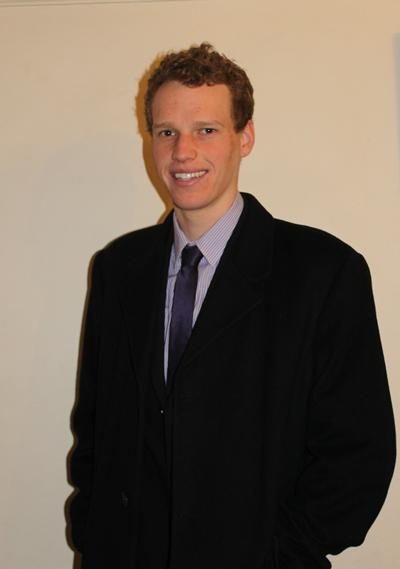Tom Entwistle MSc Integrated Environmental Studies

Hi, I'm Tom Entwistle and I studied MSc Integrated Environmental Studies within Engineering and the Environment at the University of Southampton.
The numerous projects give excellent practice and demonstrate competence in group and individual work situations. All give an opportunity to realise a problem, approach it methodically and find a solution that is presented to a professional standard.
1. What made you decide to take the course?
My undergraduate course was in physical geography, which I thoroughly enjoyed and achieved well in. I decided it would be beneficial to hone my skills to help increase my chances in the job market, and as I have always had a passion for conservation and the environment thought it apt to take a course in environmental studies.
2. Why did you choose to come to Southampton?
I completed my geography undergrad at Southampton, and like the friendly, accessible and academic prestige of Southampton. The course also covered a broad range of topics and allowed me to choose a diverse selection of modules or specialise as I wished. The integrated environmental studies pathway had the most freedom of all the available environmental management degrees, which meant I could keep the course interesting and customised to the areas I wished to become qualified in.
3. What have you enjoyed most about your course?
The variety of modules, topics and approaches mean the course is interesting throughout, and presents a challenge. Working hard and getting good marks is also a great feeling! Working with different people has been thoroughly enjoyable, and meeting a great bunch of like-minded people is excellent.
4. What are you lecturers and tutors like? Have you found them supportive?
The academic staff are very supportive and friendly, and one of the great benefits of being in small classes is the attention and personalised help. Knowing the lecturers on a friendly level makes lectures and practicals more enjoyable and breaks the lecturer-student divide so often faced with large classes at undergrad! The staff also welcome your feedback and improvements to the course, and are happy to go through information or coursework on a one-to-one basis. It is also good to know you are being taught by the leaders in their field, who challenge you to think independently and critique techniques and information, seeking better and more exciting results.
5. What are the teaching facilities like here?
Facilities are good: there are state-of-the-art computing facilities available for lectures; a host of software that is hugely important to the study of environmental sciences; laboratories and field trips.
6. What do you think of the other facilities on campus?
There are always rooms available for group or independent study, in computer clusters or quiet locations. The library is well-stocked and there are many places around the various campuses to find work space. The rest of the facilities on campus are excellent, from printing services to the cafes, and there are many opportunities to meet potential future employees through fairs and student services.
7. Have you undertaken a project as part of your course?
There are numerous short projects undertaken throughout the course, as most modules are coursework-based. These may be group or independent work. In the summer an individual dissertation is undertaken to be handed in in September.
8. If yes what did you have to do and have you enjoyed it?
As a group, I have undertaken an Environmental Impact Assessment; contrasted opinions from a social survey with scientific and media information; and completed a ‘mini project' over four days in the New Forest, monitoring the temporal dynamics of micro climates. Individually, I have performed modelling of salt marshes, species and land-use, and my dissertation will model how climate change will affect the distribution of utilitarian species in Madagascar. All have been thoroughly enjoyable and hard work, and the opportunity to work as a group and independently is excellent both academically and in the run-up to getting a job.
9. How do you think your project will help you in your future career?
The numerous projects give excellent practice and demonstrate competence in group and individual work situations. All give an opportunity to realise a problem, approach it methodically and find a solution that is presented to a professional standard. All projects are different and provide confidence in problem solving, time and resource management, and presentation, all key skills in a future career.
10. What are your career plans after you've completed the course?
I intend to look for jobs with national organisations such as the Environment Agency, or move more towards the commercial side of things and land in a consultancy.